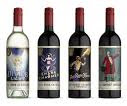 Citric acid is a weak organic acid. At room temperature, citric acid is a white crystalline powder. It is a natural preservative and is also used to add an acidic, or sour, taste to foods and soft drinks. Citric acid exists in greater than trace amounts in a variety of fruits and vegetables, most notably citrus fruits. Lemons and limes have particularly high concentrations of the acid; it can constitute as much as 8% of the dry weight of these fruits. Within species, these values vary depending on the cultivar and the circumstances in which the fruit was grown. Citric acid has been used as an additive to soft drinks, beer, and fizzy water, and occurs naturally in many juices.
Citric acid is a weak organic acid. At room temperature, citric acid is a white crystalline powder. It is a natural preservative and is also used to add an acidic, or sour, taste to foods and soft drinks. Citric acid exists in greater than trace amounts in a variety of fruits and vegetables, most notably citrus fruits. Lemons and limes have particularly high concentrations of the acid; it can constitute as much as 8% of the dry weight of these fruits. Within species, these values vary depending on the cultivar and the circumstances in which the fruit was grown. Citric acid has been used as an additive to soft drinks, beer, and fizzy water, and occurs naturally in many juices.As a food additive, citric acid is used as a flavoring and preservative in food and beverages, especially soft drinks. Citrate salts of various metals are used to deliver those minerals in a biologically available form in many dietary supplements. The buffering properties of citrates are used to control pH in household cleaners and pharmaceuticals.
Citric acid is the active ingredient in some bathroom and kitchen cleaning solutions. A solution with a 6% concentration of citric acid will remove hard water stains from glass without scrubbing. In industry it is used to dissolve rust from steel.
Citric acid is commonly employed in wine production as a substitute or improver where fruits containing little or no natural acidity are used. It is mostly used for inexpensive wines due to its low cost of production
Citric acid can be used in food coloring to balance the pH level of the normally basic dye.
Contact with dry citric acid or with concentrated solutions can result in skin and eye irritation, so protective clothing should be worn when handling these materials. Contact to the eyes can cause a burning sensation, and may cause blindness with prolonged exposure in extremely high concentrations. Sometimes a high concentration of citric acid can damage hair and bleach it.
Citric acid is commonly employed in wine production as a substitute or improver where fruits containing little or no natural acidity are used. It is mostly used for inexpensive wines due to its low cost of production
Citric acid can be used in food coloring to balance the pH level of the normally basic dye.
Contact with dry citric acid or with concentrated solutions can result in skin and eye irritation, so protective clothing should be worn when handling these materials. Contact to the eyes can cause a burning sensation, and may cause blindness with prolonged exposure in extremely high concentrations. Sometimes a high concentration of citric acid can damage hair and bleach it.

These are juices that can be found at the supermarket. Both bottle of juices contains citric acid. The picture on the left is Minute Maid Orange Juice, while on the right is the Minute Maid Lemonade. Boh are made for refreshing goodness.


No comments:
Post a Comment